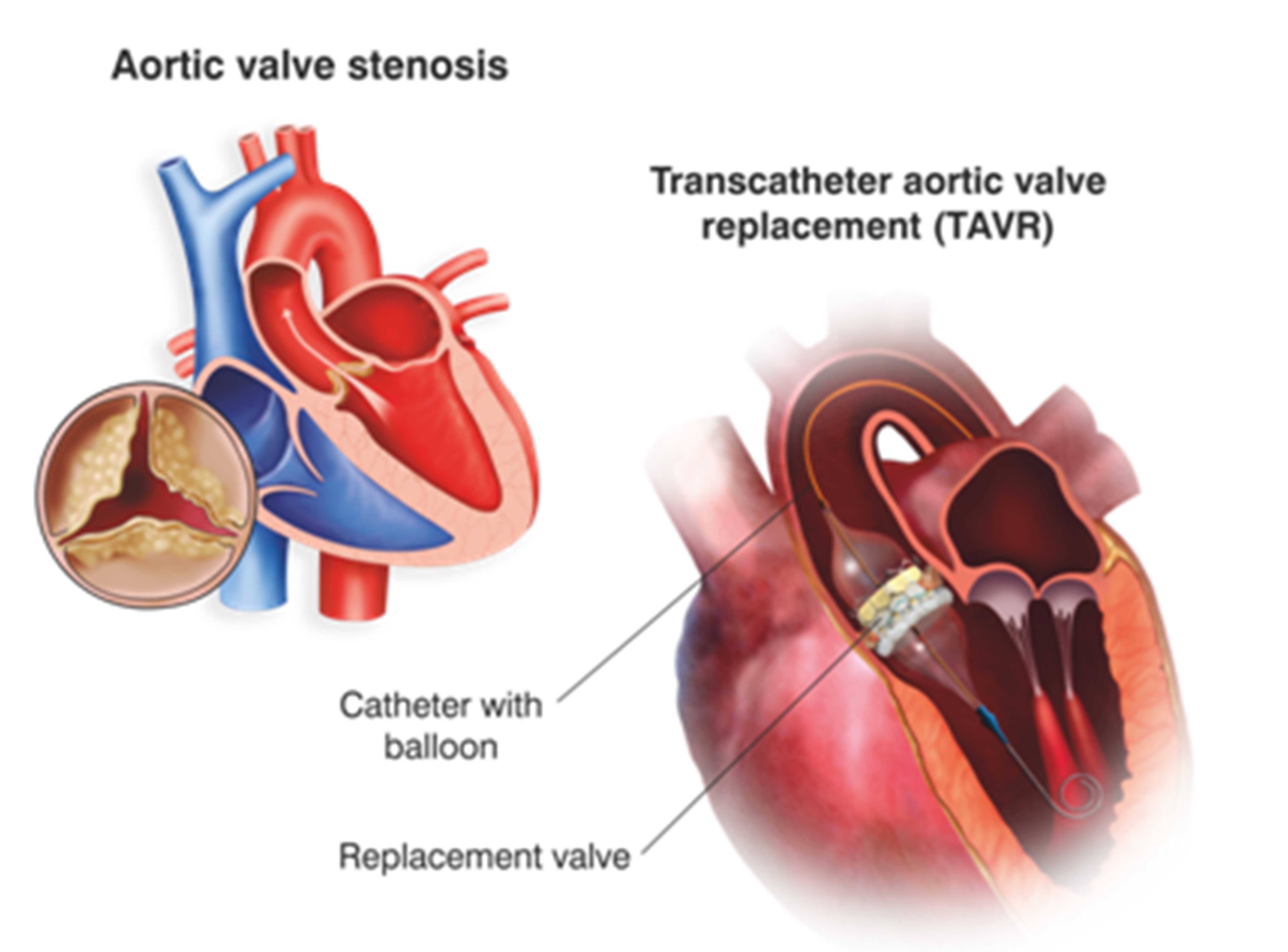- info@medicrestlive.in
- +91 9766140577

Transcatheter Aortic Valve Replacement (TAVR) is a sophisticated and minimally invasive procedure designed to treat aortic valve stenosis—a condition characterized by the narrowing of the aortic valve. TAVR offers a transformative alternative to traditional open-heart surgery for patients who may be at higher risk or require a less invasive approach.

During a TAVR procedure, a new aortic valve is guided through a catheter and implanted within the existing valve. This replacement valve takes over the role of regulating blood flow, effectively treating the valve stenosis without the need for open-heart surgery.

TAVR has garnered significant attention in the field of cardiology due to its numerous advantages:
Minimally Invasive: TAVR is performed through small incisions or blood vessels, reducing the need for major chest surgery. Lower Risk: It is often suitable for high-risk or frail patients who may not be good candidates for traditional surgery. Shorter Recovery: Patients typically experience shorter hospital stays and faster post-procedure recovery compared to open-heart surgery. Effective Outcomes: TAVR has been shown to significantly improve symptoms, quality of life, and long-term survival rates in patients with aortic valve stenosis.
Dr. Rahul Gupta: A Leading Expert in TAVR Dr. Rahul Gupta, an esteemed interventional cardiologist at Cardium Heart Care Clinic, is renowned for his expertise in TAVR procedures. With over 19 years of experience, Dr. Gupta has performed over 150 TAVR procedures and has established himself as a valve expert in the field of cardiology. His qualifications, including a DM in Cardiology, MD in Medicine, and memberships in prestigious international cardiology societies, such as FESC and FSCAI, further validate his proficiency.
Why Choose Cardium Heart Care Clinic: Cardium Heart Care Clinic, led by Dr. Rahul Gupta, is dedicated to providing comprehensive cardiac care with a patient-centric approach. The clinic offers state-of-the-art facilities, cutting-edge technology, and a highly skilled team to ensure the best possible outcomes for patients. Dr. Gupta’s expertise in TAVR procedures, coupled with his compassionate care, makes Cardium Heart Care Clinic a trusted destination for individuals seeking advanced cardiac treatments.
SummaryTAVR represents a remarkable leap forward in the treatment of aortic valve disease, offering hope and an improved quality of life for patients. Dr. Rahul Gupta’s exceptional expertise in TAVR, coupled with his unwavering dedication to patient care at the Cardium Heart Care Clinic, ensures that individuals seeking this cutting-edge procedure receive the best possible care. If you or a loved one is facing aortic valve disease, exploring the possibilities of TAVR with a leading specialist like Dr. Rahul Gupta may be the key to a healthier heart and a brighter future.
Best eye care hospitals in India are alert to any possibility of risk of contagion. For this reason, the ophthalmology sector has advised citizens to avoid, as far as possible, the use of contact lenses for glasses.
Experts of best eye care hospital in India pointed out that the virus (SRS-COV-2) can be isolated in the tear and conjunctiva and transmitted by it. So, although there is no conclusion to date on the correlation between the handling of contact lenses and the spread of the coronavirus, it would be advisable to avoid its use in this exceptional situation of a pandemic.According to reports of eye care hospital in Delhi NCR, the survival of the virus in silicone rubber for 5 days, a material from which some contact lenses are made, which may be a route of entry for Covid- 19 in your eyes.
What are the professionals’ recommendations?

In general, fungi are microorganisms that grow best in hot and humid conditions. For this reason, many mycoses usually contract in public places such as swimming pools, showers or changing rooms, places frequented by many people and where the required conditions of humidity and heat exist. Furthermore, fungi can behave like opportunistic germs, that is, they take advantage of a situation in which the patient has a decrease in his defenses. This occurs, for example, in elderly patients, diabetics or patients treated with cancer drugs (chemotherapy), among others.
